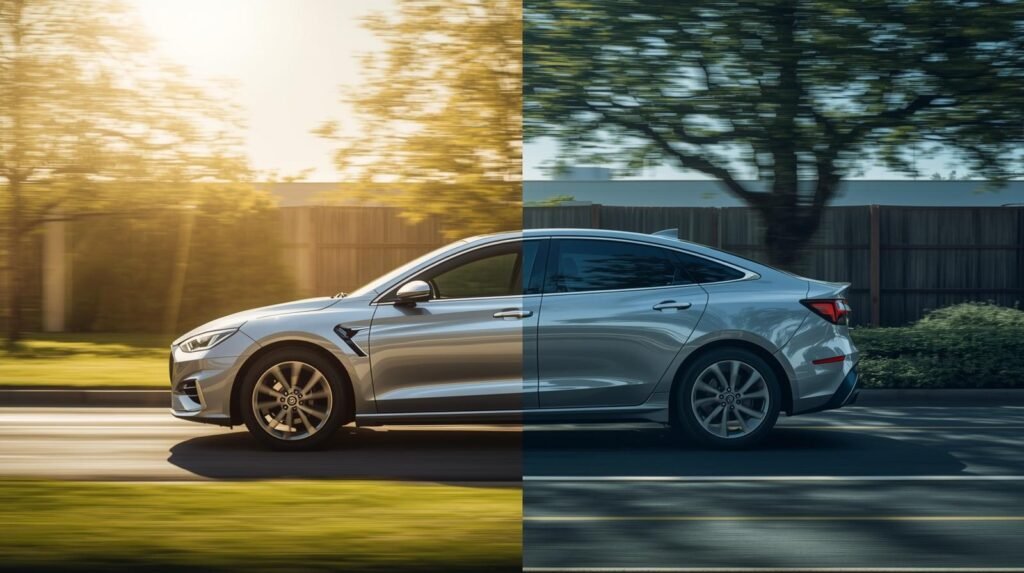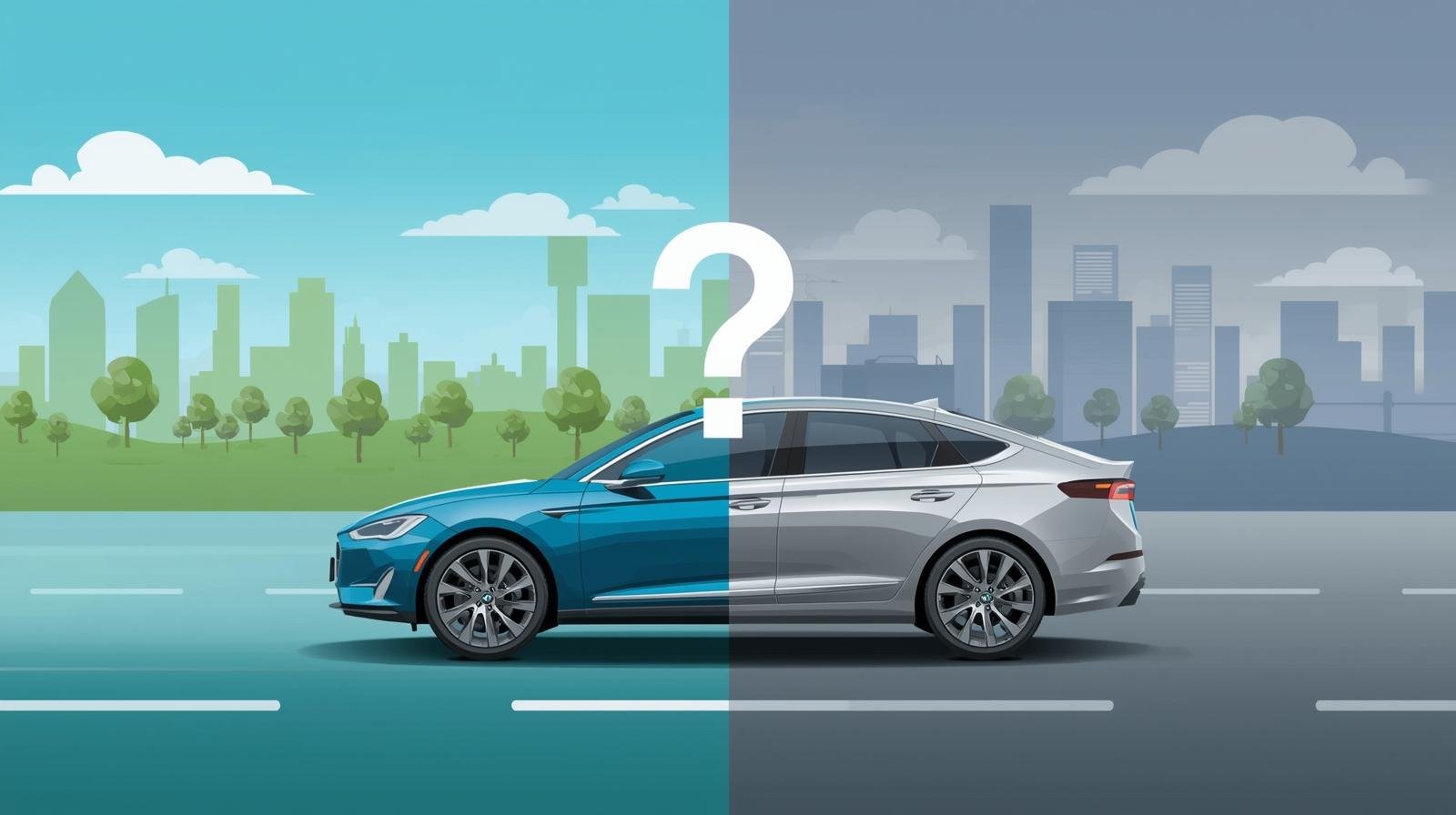In this modern age, numerous drivers are realizing the worth of a hybrid car. Although modern hybrid vehicles incorporate internal combustion engines along with electric motors, promising better efficiency, smoother drives, and reduced emissions, drivers still need to understand the advantages and disadvantages of hybrid cars and their technology.
This blog is intended to simplify the benefits and drawbacks of hybrid vehicles so the potential customers out there are better informed for the purchase of, what is mostly deemed, an economical car.

What Are Hybrid Cars? ( Advantages and Disadvantages of Hybrid Cars )
Hybrid vehicles utilize more than one form of powering mechanism . They integrate a classic petrol engine with sophisticated battery technology, using a rechargeable motor. Depending and shifting on the speed, movement factors, and battery condition, the vehicle autonomously alternates between the petrol engine and motor.
Advantages of Hybrid Cars
- Gas Mileage
People frequently pick a hybrid vehicle for one of its primary benefits – great gas mileage. This is due to the fact that hybrid cars pair an electric motor to an internal combustion engine. The electric motor is helpful because it powers the vehicle at low speeds. This motor can also save the engine by lowering the fuel consumed and the carbon emitted.
- Less Pollution
With less burning of fossil fuels than a conventional internal combustion engine, hybrid cars are less of a menace to the environment than gas-only cars. Also, the fact there are low emissions cars results in a lower carbon footprint, therefore, there is cleaner and less polluted air. This is primary because there is so much attention on the climate and the quality of air.
- Tax Deductions
The initial cost of a hybrid vehicle can be quite high, however, some countries offer perks such as tax credits, rebates, or lower a lower registration fees. This makes it much cheaper in the long-run, because the initial cost is low due to the perks.
- Regenerative Braking
Less wear and tear on the brakes is one of the benefits of regenerative braking. Also, the cars battery will last longer. This is because energy is recovered through braking and is converted to electricity which recharges the car battery. This element of hybrid cars increases the efficiency of the vehicle.
- Decreased Fuel Costs
These cars use less gas so they cut down on fuel costs significantly, especially for those who drive long distances. These savings can balance the initial high cost of purchasing a hybrid fuel vehicle.
- Very Smooth Transition And Also Quiet
These cars run on an electric motor so they are often quieter than other cars. In the city and other busy places, the electric cars drive silently and it’s a major plus.
- Best Resale Value In The Industry
These cars tend to keep their value and resale value better than older petrol cars. In the long run, these cars have the resale value due to the less fuel they consume, and the fuel efficient cars are more economical.
Disadvantages of Hybrid Cars
- Higher Purchase Price
Like any technology, there are some downsides which incorporate hybrid cars having a higher purchase price in comparison to normal vehicles. The more complicated apparatuses in a hybrid, such as the electric motor and batters, tend to even gravely impact the price. In spite of all of this, the long-term tax benefits and savings from the fuel costs would make justify this purchase.
- Battery Life and Replacement Costs
Equally, hybrid cars are powered by electric motors which means that they utilize batteries. Just like any other piece of machinery, these batteries will need changing eventually. In such a situation, a hybrid’s fuel efficiency more than eating the costs that arise will become an expense in itself, particularly with the value of the batteries. Most of them come with a warranty stipulation, but it is certainly a point that has to cross the mind of the purchaser.
- Limited Driving Range on Electric Power Alone
They can operate on gas and can also survive on electric power. However, their range is more like a guppy’s than a whale’s. Most hybrid vehicles tend to only operate on the battery for short durations. After which, the gas engine has to turn on. This means when it comes to long-distance rides, you are become greatly gas reliant, which is off-putting for someone who is. Would like to only deal with electric vehicles.
- Maintenence Costs
Even though a hybrid car requires less repair work than a gas-powered car, hybrid cars may be costlier to maintain because a gas and electric powered car uses to a combination a gas and electric engine which requires specialized maintenance and parts.
- Limited Model Options
Even though the hybrid market is growing, there are still fewer models to choose from than more traditional vehicles. Most car brands have hybrid versions available, but the selection is still somewhat limited.
- Complex Technology
The technology found in a hybrid car is very advanced. Each hybrid car comes equipped with a complex system which may be considered advanced to a lot od mechanics. Electric motors and dual power train systems are considered advanced.
Are Hybrid Cars Right for You?
For lots of folks, especially those who drive shorter distances or who drive in the city a lot or wanting to go green, hybrid cars are a good choice. They have good fuel efficiency, offer financial incentives, have reduced emissions, and are considered the best choice for those who are responsible for the environment.
Despite the benefits, hybrid cars have their limitations, and for those who drive over long distances, who are unable to spend a high initial amount, or have a lower range, a gas car or electric vehicle will be a more fitting choice. And if you have lower complexity tech preferences hybrid cars will probably not be the right choice for you.
Are hybrid cars more fuel-efficient than standard cars?
Yes, they are more fuel-efficient than standard cars due to the combination of a gasoline engine an electric motor which saves fuel and lowers emissions.
Do hybrid cars require more specialized maintenance?
Due to the dual powertrain system, hybrid cars may need some more specialized maintenance than traditional cars. However, they do need more maintenance than traditional cars in certain areas like brake wear.
How long do hybrid car batteries last?
Batteries in hybrid cars last for about 8 to 10 years or 100,000 to 150,000 miles which depends on the car and the way it is driven.
Do hybrid cars have to be plugged in?
No, hybrid cars do not have to be plugged in. They automatically charge their batteries through regenerative braking and the gasoline engine.
Are there tax incentives for having a hybrid car?
Yes, there are tax incentives or rebates a lot of countries offer for people who buy hybrid cars. These incentives tend to differ for different areas, so it is good to check the incentives available in your region.
Conclusion
There are many benefits with hybrid cars like better fuel consumption, lower long-term fuel costs and less impact on the environment. That said, the drawbacks still exist such as higher purchase price, costs associated with maintaining battery and the limited range in e and range extender modes. Deciding on whether or not to purchase a hybrid car still comes down to the buyer and their driving behaviors, budget and future aspirations.
It is true that a hybrid car will help lower expenses during refueling and can provide a better option for public transport, but it requires underwear consideration. All possible outcomes must be analyzed first.

